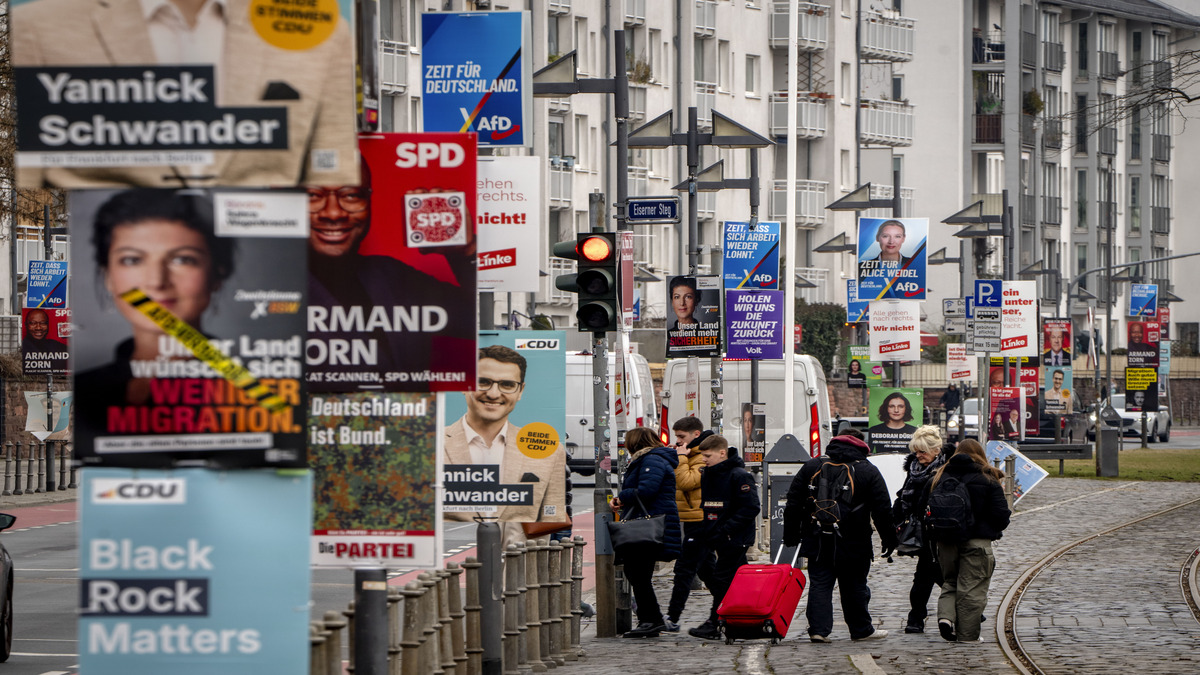Germany will go to the polls today (February 23).
The election comes after Germany’s ruling coalition, led by Chancellor Olaf Scholz, collapsed following disagreements over the country’s weak economy.
According to a survey conducted on February 12 by the news organisation Politico, the Christian Democratic Union (CDU) and its Bavarian sister party, the Christian Social Union (CSU), are currently leading the polls with nearly 30 per cent of voters’ support.
The right-wing Alternative Fur Deutschland (AfD) is in a close second with 21 per cent.
Scholz’s Social Democratic Party (SPD) came in third place with 16 per cent of the vote in the same survey, followed by Alliance 90/The Greens, also known as the Greens, with 12 per cent.
From immigration to the Ukraine war and energy, here is a list of some pressing issues on voters’ minds in the lead-up to Sunday’s election.
Immigration problem
This has been a top concern for Germans, especially after a wave of fatal attacks attributed to asylum seekers in the country.
Conservative poll frontrunner Friedrich Merz has suggested sending away all undocumented immigrants, including asylum seekers, at the border, in a blatant departure from his party’s former chancellor Angela Merkel.
He also wants to make it more difficult to become a German citizen and limit family reunification. Chancellor Olaf Scholz has accused Merz of trying to “bury Europe” with his plans.
Scholz’s SPD, meanwhile, has also promised to increase border security and expedite deportations, but in a way he calls more “humane and consistent.”
Calling for a “bulwark” against illegal migration, the far-right AfD has pledged to police Germany’s borders around-the-clock and reduce benefits for asylum seekers.
Also read: Germany elections: Meet the four candidates in the race to become the next chancellor
Support to Ukraine
Germany is the second-largest military supporter of Kyiv behind the United States, three years after Russia invaded Ukraine.
Even as US President Donald Trump’s direct approach to Russia has rocked the Western alliance, major political parties have promised to retain their support.
Merz and Scholz disagree about the types of armaments that should be sent to Ukraine.
Merz wants Germany to provide Taurus missiles that can penetrate deep into Russian territory, while Scholz, who is more cautious, warned that doing so would be like playing “Russian roulette.”
Three other parties, including the far-left Die Linke and BSW and the AfD, have demanded that all arms transfers to Ukraine be stopped.
The CDU/CSU, SPD, and Green parties have all voiced willingness to raise military spending above NATO’s two per cent GDP target.
Struggling economy
Germany is in the midst of a recession and is working to revive its economy, which raises concerns about how to finance additional investments in defence, green energy, and deteriorating infrastructure.
The solution, according to the SPD and the Greens, is to remove the so-called debt brake, a constitutional provision that caps annual structural deficits at 0.35 per cent of GDP.
Despite their seeming flexibility on the subject, the conservatives are more concerned with cutting corporate taxes and decreasing unemployment funds for people who are unwilling to return to the workforce.
Merz, who was once known for saying that a tax return should fit on a beer coaster, has also promised to cut back on red tape and bureaucracy.
Scholz has suggested lowering the income tax for 95 per cent of households, raising the inheritance tax, and reintroducing the wealth tax.
In contrast, the liberal FDP has strongly defended the debt constraint, wants to support businesses, and wants to cut back on public spending.
Energy prices and more
Germany is deeply divided as a result of policies like weaning the country off of Russian gas, closing nuclear power plants and winding down coal.
For the benefit of the struggling auto sector, the CDU/CSU is seeking to overturn a 2035 European ban on combustion engines.
A return to atomic power is another area of interest.
Furthermore, the conservatives seek to repeal a widely criticised law that the Greens introduced to promote the construction of renewable heating systems.
The Greens have promised a climate allowance to compensate citizens for higher heating and energy prices.
Alice Weidel, the leader of the AfD, has called wind turbines “windmills of shame” and questioned the legitimacy of climate change.
Culture wars
Beginning with the legalisation of cannabis, the conservatives and AfD have pledged to undo a number of progressive policies that Scholz’s coalition passed.
The CDU/CSU claims this has led to “violent gang warfare”, while advocates of legalisation say it has helped curb the black market.
In a broadside against what they refer to as “woke” culture, the AfD and conservatives have also promised to revoke measures that have facilitated legal gender transitions.
With inputs from AFP
)